Tenof 300 mg Tablets
$55.00 – $157.00
| Pack Size | Price | Price / Unit | Quantity | |
|---|---|---|---|---|
| 30 Tablets | $55.00 | $1.83/ unit | ||
| 60 Tablets | $108.00 | $1.80/ unit | ||
| 90 Tablets | $157.00 | $1.74/ unit |
Want to order in bulk / B2B price ? | Send Inquiry |
| SKU | 11376 |
| Manufacturer | Hetero Healthcare |
| Categories | Anti HIV |
| Delivery Time | 10 - 14 Working Days |
| Strength | 300mg |
Introduction to Tenof 300mg Tablets
Tenof 300 mg Tablets are widely used as part of antiviral treatment, primarily for managing chronic hepatitis B infection and HIV. These tablets help in controlling viral levels in the body, contributing to long-term health improvement in patients undergoing treatment.
This medication contains Tenofovir Disoproxil Fumarate, a powerful active ingredient known for its effectiveness in antiviral therapy. Tenof 300 mg Tablets are often prescribed in combination with other drugs as part of a comprehensive treatment plan for better outcomes.
Patients are advised to take Tenof 300 mg Tablets under strict medical supervision, as regular monitoring is essential for safe and effective use. It’s crucial to follow the prescribed dosage and avoid skipping doses to maintain consistent therapeutic effects.
Tenof 300 mg Tablets are available only by prescription and must be stored properly to ensure potency. Always consult a healthcare professional before starting or stopping this medicine, especially if you have any existing kidney or liver conditions.
Uses of Tenof 300mg Tablet
- Chronic Hepatitis B Virus (HBV) Infection
- HIV-1 Infection
- Pre-Exposure Prophylaxis (PrEP)
- Co-infection with HIV and HBV
How Does Tenof 300 Works?
Tenof 300 mg contains Tenofovir Disoproxil Fumarate, which belongs to a class of medications called nucleotide reverse transcriptase inhibitors (NRTIs). It interferes with the action of reverse transcriptase, an enzyme viruses like HIV and HBV use to replicate, thereby reducing their ability to multiply.
By limiting the replication of the virus, Tenof 300 mg helps lower the viral load in the blood. This supports the immune system in fighting infections more effectively and reduces the risk of complications associated with long-term viral infections like liver damage or immune suppression.
Side Effects Tenof 300 mg Tablet
Common Side Effects
- Nausea
- Diarrhea
- Headache
- Abdominal Pain
- Fatigue
- Dizziness
Serious Side Effects
- Kidney Problems
- Lactic Acidosis
- Hepatotoxicity
- Pancreatitis
Dosage of Tenof 300mg
The usual recommended dose of Tenof 300mg Tablet for adults is one tablet (300 mg) once daily, taken with or without food. It is important to take the medicine at the same time each day to maintain consistent levels in the body.
Dosage may vary based on the patient’s age, weight, kidney function, and medical condition, especially in those with kidney impairment, where dose adjustment or extended dosing intervals may be necessary. Always follow your doctor’s instructions strictly and never change the dose without medical advice.
How To Manage Side Effects?
- Follow Prescribed Dosage
- Healthy Lifestyle
- Stay Hydrated
- Avoid Alcohol and Certain Medications
- Address Digestive Issues
- Seek Support
- Medication Timing
Warnings & Precautions
1. Liver Conditions:
- Caution is advised in patients with liver problems. In some cases, liver enzyme levels may rise, and stopping the medicine suddenly can worsen hepatitis B symptoms.
2. Bone Health:
- Long-term use may reduce bone mineral density, increasing the risk of fractures. Calcium and vitamin D supplementation or monitoring may be recommended by your doctor.
3. Not for Children Below 18:
- Tenof 300mg is generally not recommended for pediatric patients under 18 years unless specifically prescribed, as safety and efficacy in this group have not been fully established.
4. Pregnancy & Breastfeeding:
- Use during pregnancy or breastfeeding should only be under medical supervision. The benefits must outweigh any potential risks to the mother or baby.
5. Drug Interactions:
- Inform your doctor about all other medications or supplements you’re taking, as Tenof 300mg can interact with other antiviral or kidney-affecting drugs, potentially altering its effectiveness or increasing side effects.
Storage
- Temperature: Store Tenof 300mg Tablets at a room temperature between 20°C to 25°C (68°F to 77°F). Avoid extreme heat or cold to maintain the medicine’s stability and effectiveness.
- Keep Dry: Store in a cool, dry place away from moisture and humidity. Do not keep it in bathrooms or near the kitchen sink.
- Original Packaging: Keep the tablets in their original blister pack or bottle until use to protect them from light and air exposure.
- Keep Away from Children: Always store out of reach of children and pets to avoid accidental ingestion. Dispose of expired or unused medicine safely, as advised by a pharmacist or doctor.
Frequently Asked Questions
1. What Are The Required Laboratory Parameters Before Starting Tenof 300mg Tablet?
Ans. If you are an adolescent or adult of childbearing potential, your healthcare provider will perform a pregnancy test before prescribing this treatment. Other prominent tests include HBV infection, estimated creatinine clearance, serum creatinine, urine glucose, and urine protein.
2. How Do You Know If You Are Hypersensitive To Tenof 300mg Tablet?
Ans. Watch out for symptoms like severe rash, rash accompanied by fever, muscle pain, extreme tiredness, facial edema, breathing difficulty, blisters, and peeling of the skin, and reach out to your healthcare provider immediately if you notice any of these symptoms.
3. How Do I Take Tenof 300mg Tablet Correctly?
Ans. Tenof 300mg should be taken once daily, preferably at the same time each day. You can take it with or without food. Always follow your doctor’s instructions carefully and do not skip doses to ensure effective treatment.
4. Can I Stop Taking Tenof 300mg If I Feel Better?
Ans. No, you should not stop taking Tenof 300mg without consulting your doctor. Even if you feel better, stopping suddenly can cause the virus to multiply again and may worsen your condition or cause resistance.
| Pack Size | 30 Tablets, 60 Tablets, 90 Tablets |
|---|---|
| Price/Unit | $1.75/unit, $1.80/unit, $1.85/unit |
Be the first to review “Tenof 300 mg Tablets” Cancel reply
Related Products
Anti HIV

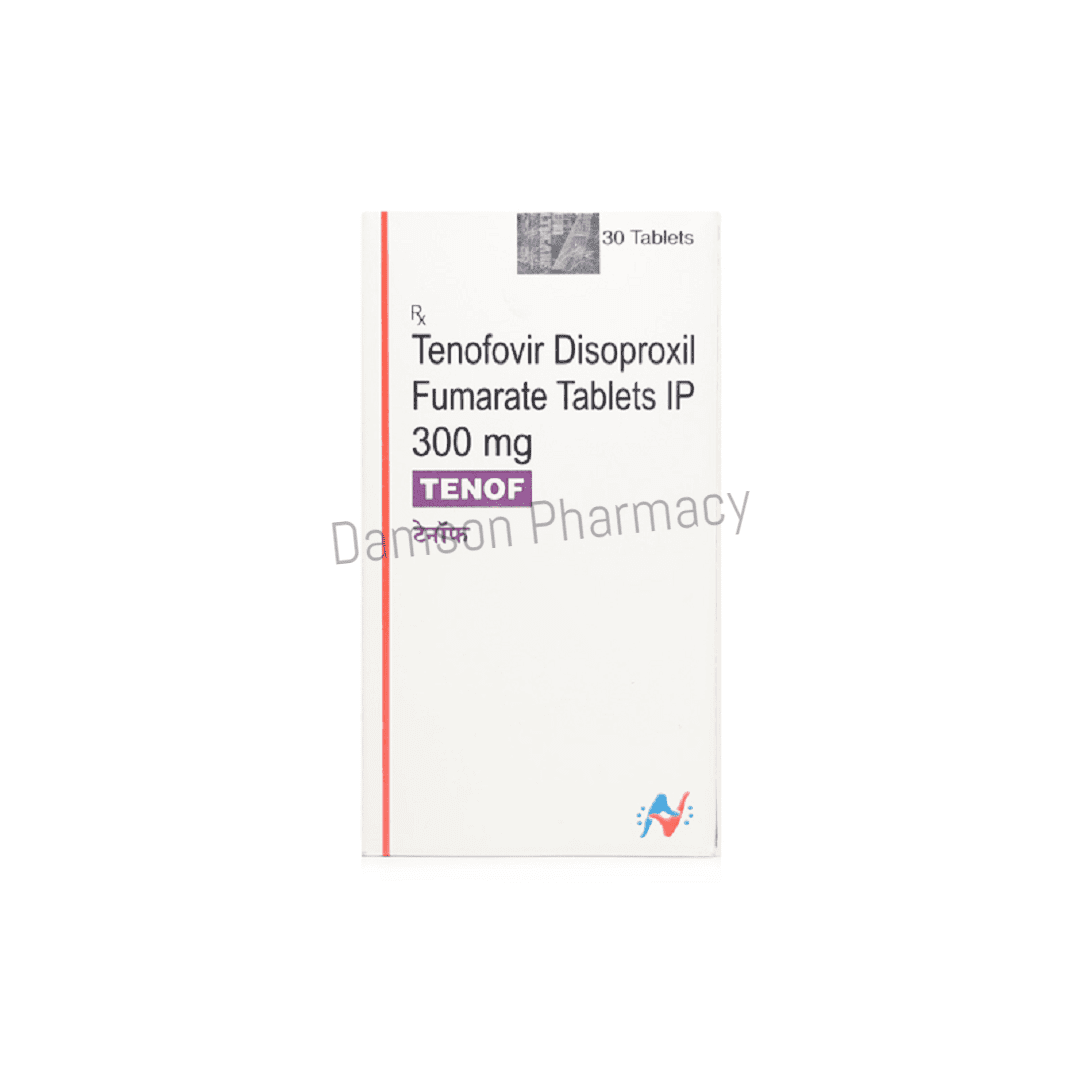
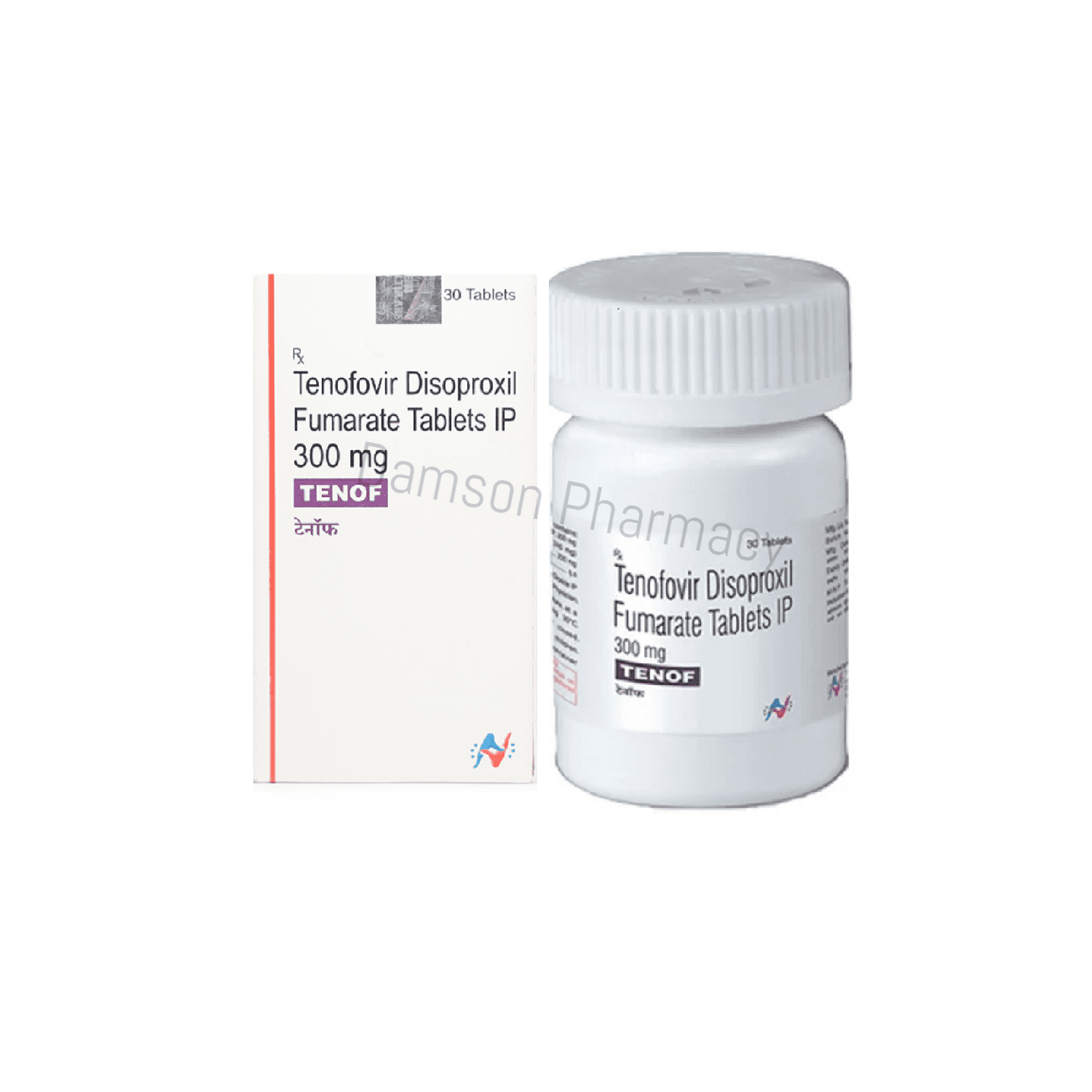
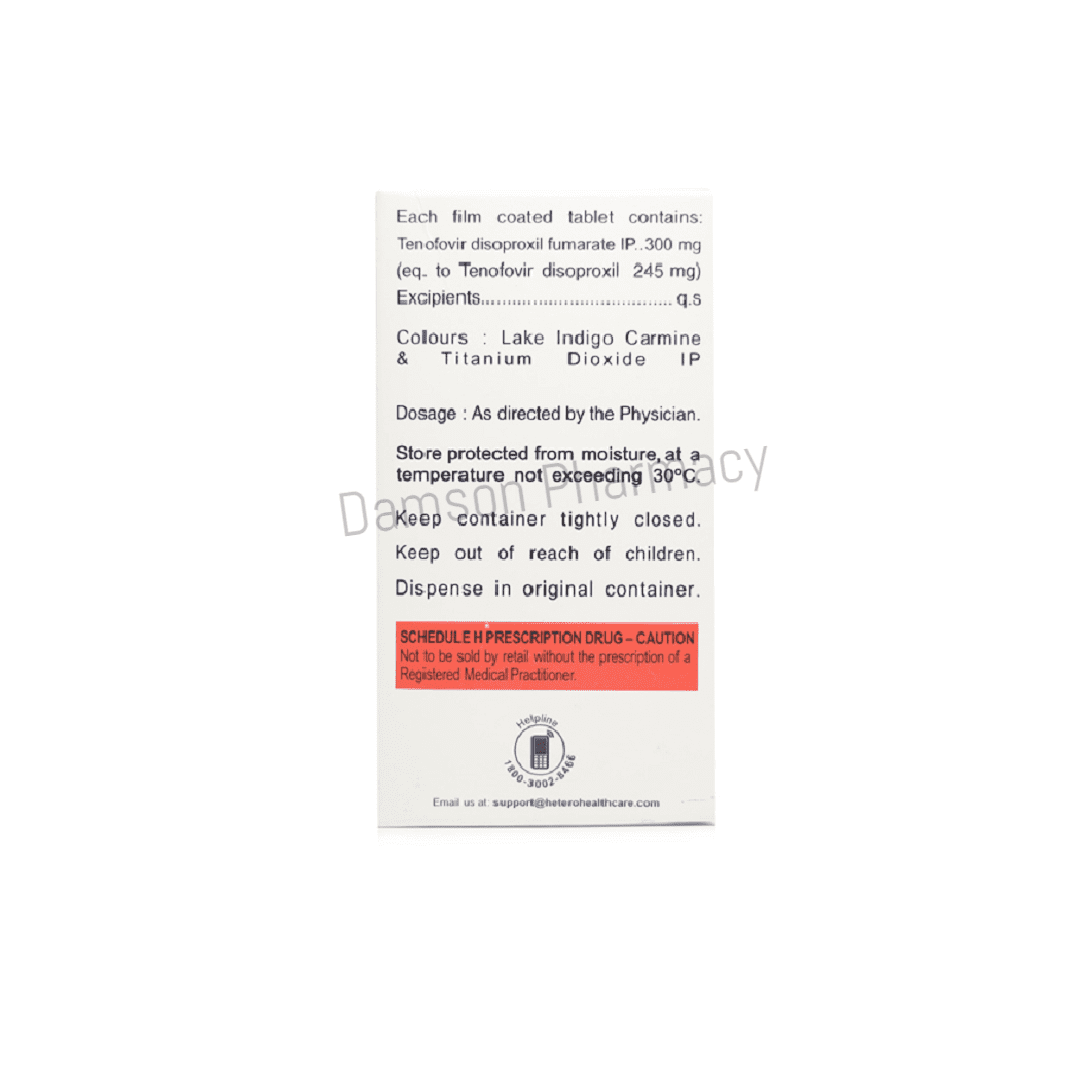
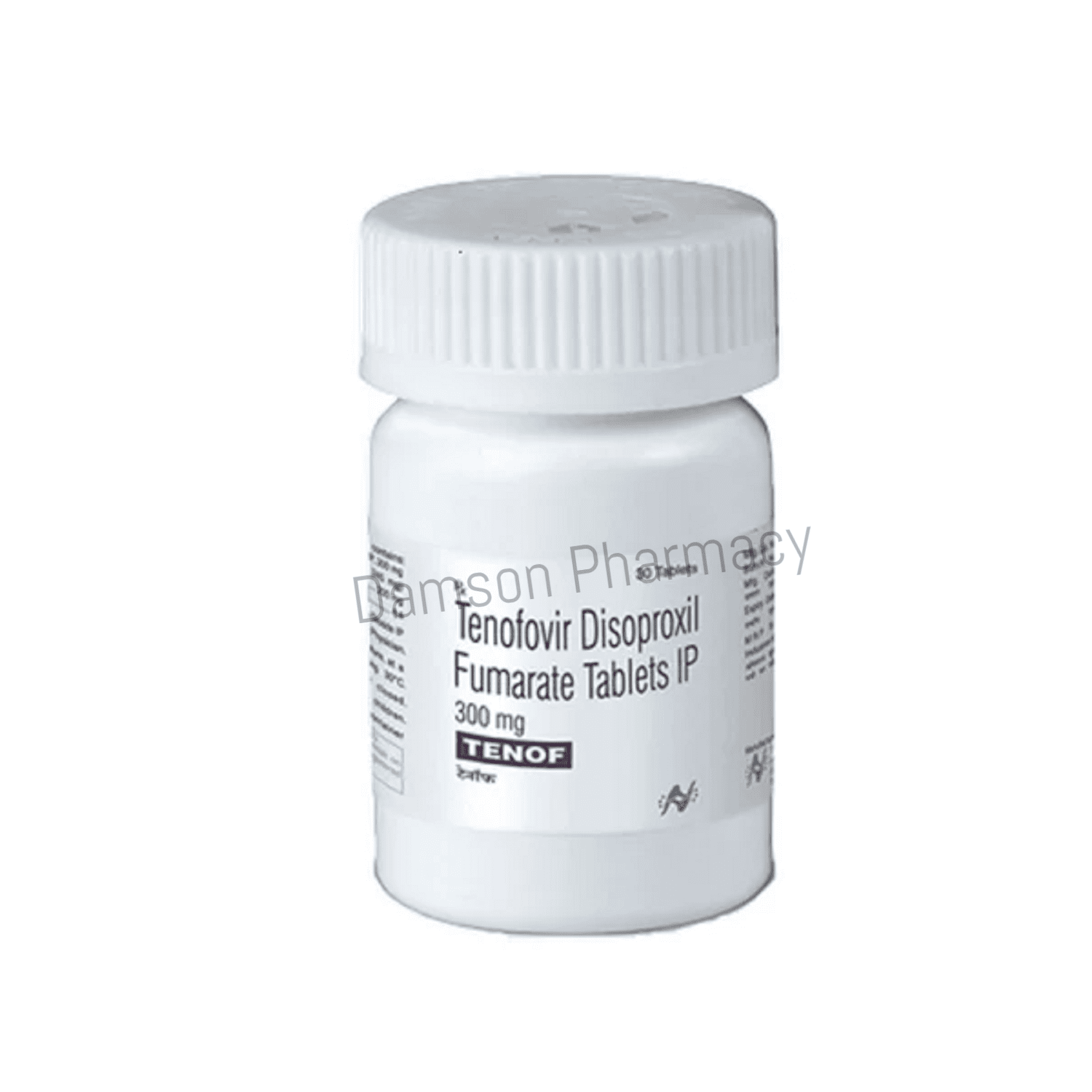
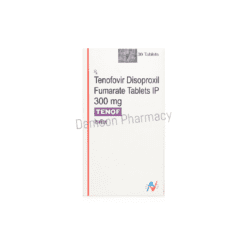
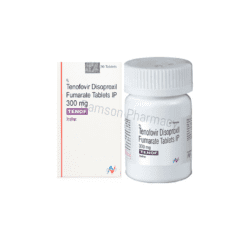
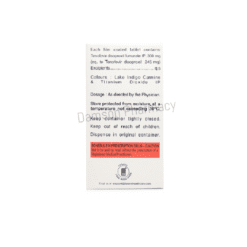
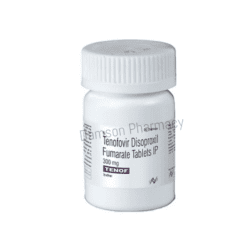
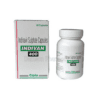
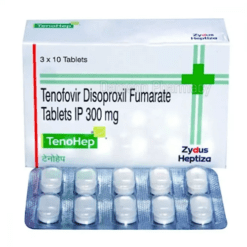
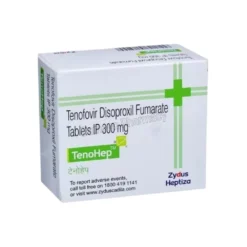
Reviews
There are no reviews yet.